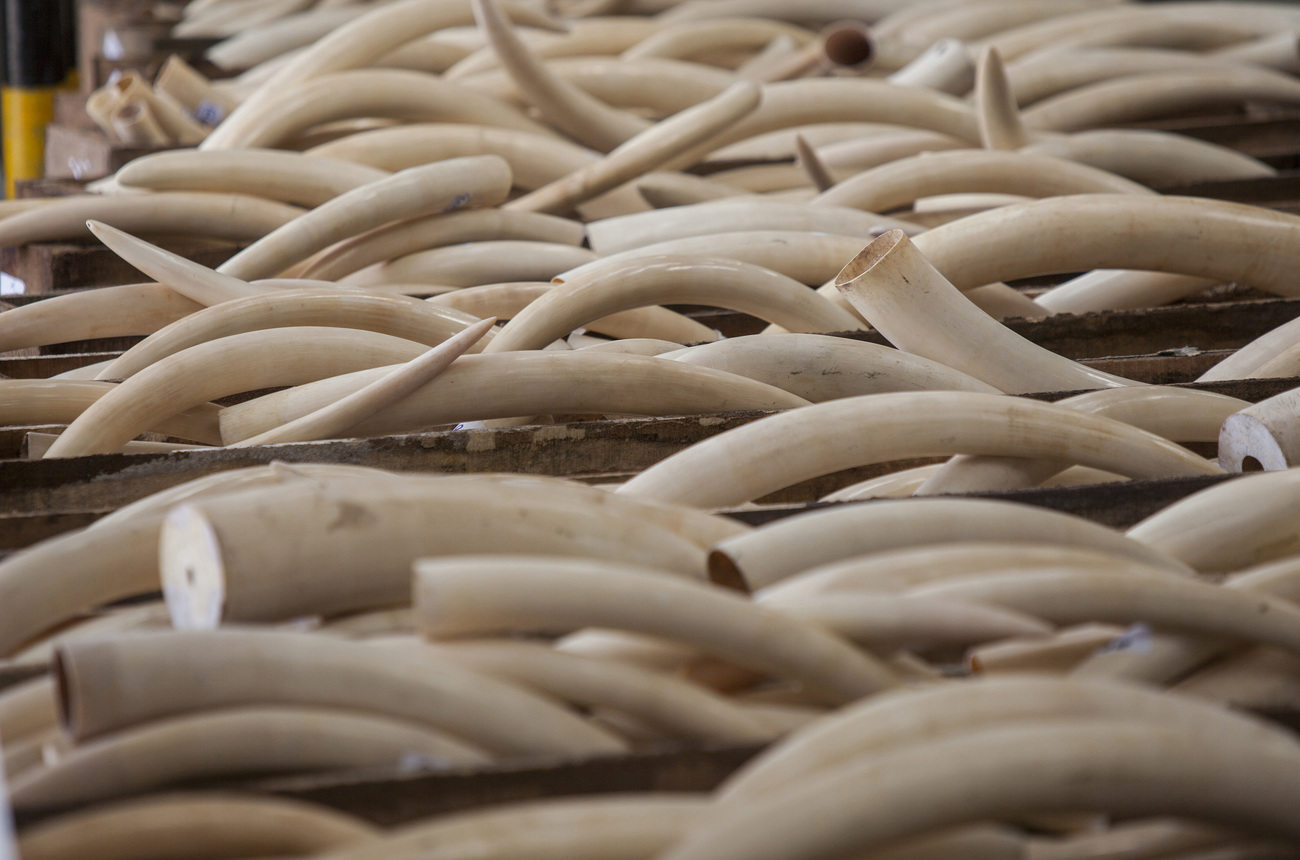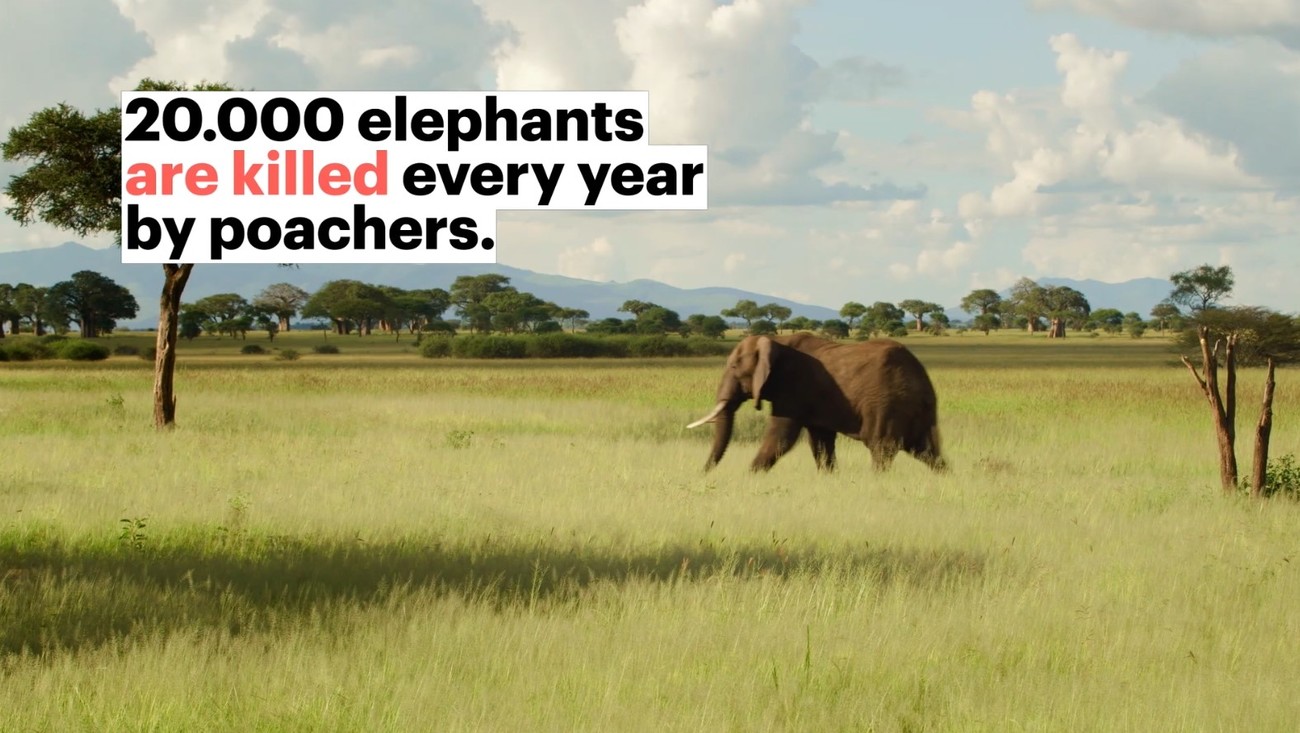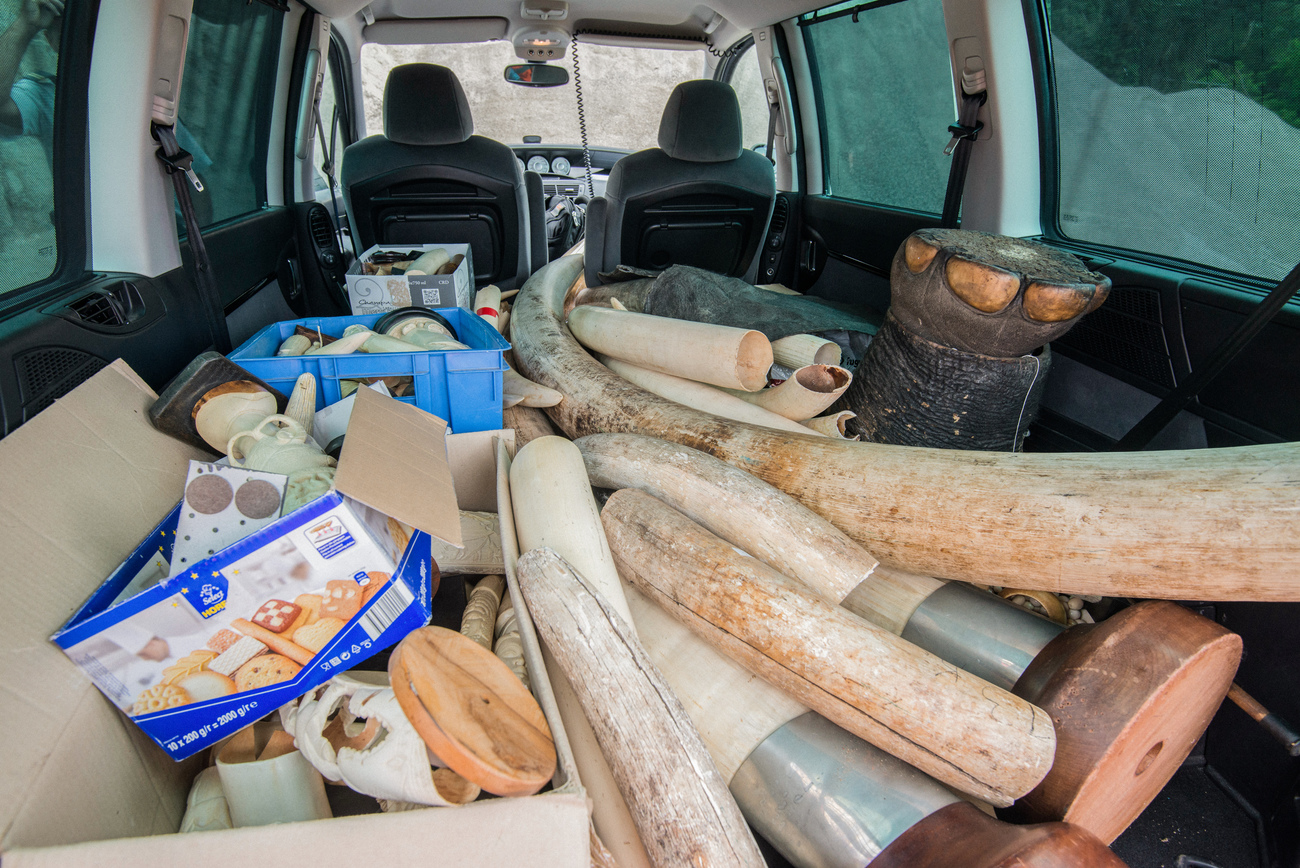Wildlife Crime Prevention - Europe
The European Union is widely considered to be the third largest destination for illegal wildlifebanning ivory trade in Europe
banning ivory trade in Europe
Considered one of the largest destinations for the trafficking in endangered species (both plants and animals), the European Union is also a crucial hub for ivory trade
Key Facts:
- The European Union (EU) is among the largest exporters of legal ivory in the world
- Poaching doesn't take place in Europe itself—it is our demand that fuels the senseless killing of elephants across Africa and Asia.
- The existence of legal domestic ivory markets in the EU and elsewhere provides cover for criminals to launder illegal ivory from poached elephants, putting the burden of proving illegality on enforcement officers, and confusing consumers, many of whom may misunderstand availability vs. for legality of the trade.
- As global leaders move to shut down ivory markets, the EU must now play its part and not undercut the efforts of other countries to shut down the ivory trade.
- On 16 December 2021, the EU announced revised regulation and new guidance, severely restricting trade in ivory. The new measures are its strongest yet.
see the EU ivory campaign timeline

Problem
Global ivory trade is a threat to elephants wherever they are. Trade in ivory, even when it is legal, causes consumer and enforcement confusion, and potentially provides a cover for the laundering of illegal ivory.
Contrary to the public perception that an international ban on commercial ivory trade exists, significant legal commercial trade in raw and worked ivory continues, due to regulatory loopholes. Demand for worked ivory objects and tusks has led to seizures at many EU borders, or confiscations in importing countries such as China and Vietnam. Today the EU regulations are stricter than ever, but most of them are still not legally binding, and they require implementation at individual Member State level.
Elephants are intelligent, social creatures that mourn their dead and keep week-long vigils over fallen family members. Research shows that the effects of poaching extend to that of survivors and wider elephant society, collectively suffering long-term emotional and social distress.
A solution for elephant poaching

The problem in numbers:
- Today, there are just over 400,000 elephants in Africa; a 70 percent decline since the 1970s, primarily due to poaching.
- Thousands of elephants are killed each year for their ivory.
- Any legal trade enables and encourages illegal trade.
- More African elephants are killed by poachers each year than are being born.

Solution
IFAW has been advocating for restrictions on ivory trade in Europe for the past decade, including during the development and implementation of the EU Action Plan against Wildlife Trafficking. This Action Plan is currently up for renewal, and IFAW remains active in facilitating recommendations and quick action.
The work paid off. The European Parliament passed two resolutions calling for an end to the ivory trade in the EU and, in 2017, the Commission issued a non-binding guidance document that recommended suspending (re)export of raw ivory items. To build on this momentum, IFAW launched a public campaign, #NoIvoryInEU, demanding the EU to close its ivory markets, and we continue to work with other NGOs and diverse stakeholders in ongoing advocacy efforts.
In May 2018, more than 90 Members of the European Parliament called for a total ban on ivory trade and imports in the EU, and a public consultation released by the European Commission showed that more than 90% of the 90,000 respondents were in support of an EU ban on ivory trade.
The new rules set out by the European Commission in 2021 are an important milestone in the fight against wildlife crime. They considerably restrict domestic ivory trade, as well as imports and re-exports of both raw and worked ivory.
The support of all EU Member States in passing an EU-wide legislation is key, but it has to be followed by thorough implementation in each country. In recent years, France, Luxembourg, the Netherlands, the UK and Belgium have passed national legislation to ban ivory trade—with various levels of flexibility.
IFAW urges the European Commission to rigorously monitor all levels of implementation in the coming months and promptly address potential shortcomings and lack of enforcement. Together we can protect and preserve elephant populations for generations to come.
Related content